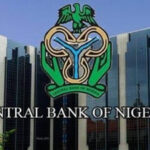The International Monetary Fund (IMF) has informed the federal government that the reintroduction of fuel subsidies was concerning.
IMF expressed this view at a virtual meeting with representatives of the Nigerian government.
Join our WhatsApp ChannelIn a press statement made available to the media after the meeting, IMF also stressed the importance of introducing market-based petroleum pricing mechanisms and the need to deploy well-targeted social support to cushion any impact on the poor.
Led by Jesmin Rahman, the IMF delegation in its statement reviewed the government’s overall efforts in the economy. On monetary policy, IMF advised that the federal government strengthen the monetary targeting regime and integrate the interbank and debt markets.
Commending the Central Bank of Nigeria (CBN) for merging the official exchange rate to the NAFEX window, the IMF also recommended the unification of all exchange rate windows and establishing a market-clearing exchange rate.
Also commending the federal government’s efforts towards containing the transmission of COVID-19 in the country and the COVAX vaccination programme, Rahman said Nigeria’s economy was gradually recovering from the negative effects of the pandemic.
“Gross Domestic Product growth turned positive in the fourth quarter of 2020, and growth reached 0.5 per cent year-on-year in Q1 2021, supported by agriculture and service sectors.
“Nevertheless, the employment level continues to fall dramatically and together with other socioeconomic indicators, is far below pre-pandemic levels. Inflation slowed down in May but remains elevated at 17.9 per cent, owing to high food prices.
“As oil prices and remittance flows recover, the balance of payments has slightly strengthened, although imports are rebounding faster than exports and foreign investment subdued resulting in forex shortage.”
Commenting on the banking sector, the IMF advised the government to keep reliance on CBN overdrafts for deficit financing within legal limits. The government was also asked to strengthen budget planning and public finance management practices to allow for flexible financing from domestic markets for better integration of cash and debt management.
“The banking sector remains liquid and well-capitalised while non-performing loans are contained. The extension of the moratorium on principal payments of qualifying credit facilities on a case-by-case basis through March 2022 should be limited to viable debtors with strong pre-crisis fundamentals.
“CBN stress tests show that the banking system would remain adequately capitalised except in case of a severe deterioration of credit quality. Nevertheless, it is not clear what share of forborne loans may turn non-performing as the impact of the pandemic subsides.”















Follow Us